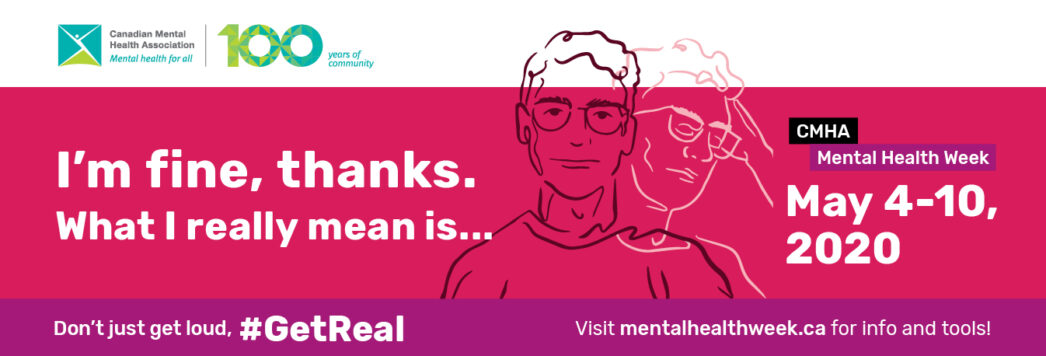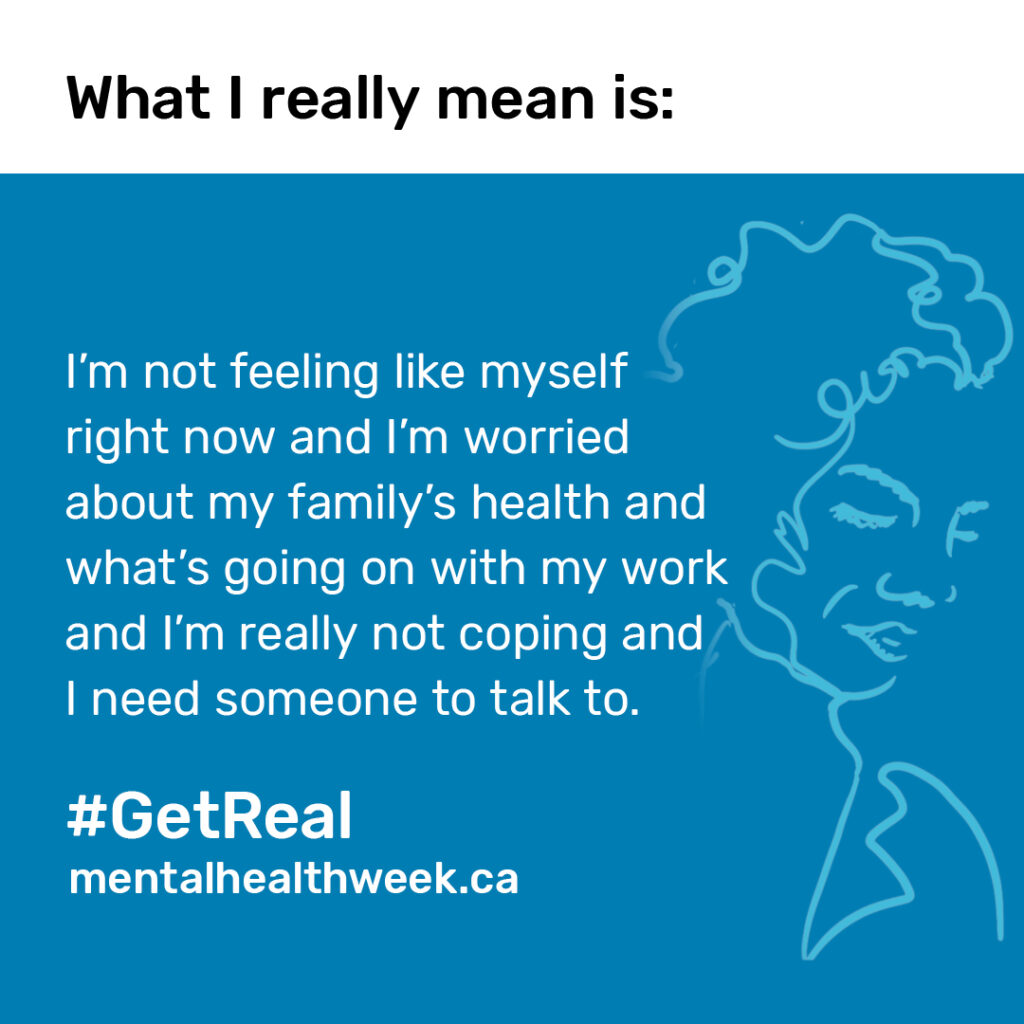Mental health is different from mental illness. Everyone has mental health, but not everyone experiences mental illness. Our mental health is our mental well-being, which incorporates our emotions, our thoughts and feelings, our ability to solve problems and overcome challenges, our social connections and supports, and our understanding of the world. Mental illness is a condition that affects the way people think, feel, behave, or interact with other people. Just like physical illnesses, mental illnesses can come in many different forms. We often refer to mental illness as “mental health challenges” or “mental health issues”. Like physical health, it is important that we take care of our mental health.
Our mental health is very fragile right now because of all the uncertainty and stress surrounding the COVID-19 pandemic. We can protect our mental health by using healthy coping strategies when we start to feel negative emotions.
Recent research shows that more Canadians are turning to alcohol to cope with the feelings of anxiety, stress, loneliness, and boredom. But alcohol is a dangerous coping strategy. It can lead to other mental health challenges like substance use issues, increased anxiety, and depression. It is important that we turn to healthy coping strategies to maintain and improve our mental well-being during the COVID-19 outbreak and beyond.

Healthy coping strategies might look different for everyone. Many of us have built healthy coping strategies into our daily lives without even thinking about it! As a rule of thumb, think about the things you do to change your mindset when you start to feel overwhelmed or anxious. Some of those strategies might need to be adapted to suit your current situation, but there are a number of strategies that we can fall back on.
Listed below are examples of some healthy coping strategies. Remember that not all of these coping strategies will work for you. Be creative and experiment to see which ones best fit your lifestyle. For more information check out the resources available on the Canada Mental Health Association website.
Get the right information
Get factual information about the pandemic from reputable sources like:
The World Health Organization (WHO)
Health Canada
Your provincial or territorial government.
Be wary of information shared on social media sites from unfamiliar websites or sources.
Stay tuned in but know when to unplug
Right now, there is a lot of coverage surrounding COVID-19. While it is important to stay informed about how to manage your risk, too much information can take a toll on your mental well-being. Try to limit your exposure to news coverage and social media to once a day or less.
Connect with loved ones
Reach out virtually and ask for support from friends or family members that are a positive influence on you. If possible, avoid connecting with people that increase your feelings of stress or anxiety.
Do an activity that you find enjoyable
Do an activity you find enjoyable and relaxing. This might include any number of activities, like mindfulness meditation, reading a book, gardening, painting, and cooking. Choose something that you enjoy and are likely to continue doing.
Seek support if you need it
Seek support from formal networks, either online or by phone, that can help you when you are experiencing high levels of stress or anxiety. These might include distress lines, online support groups, or religious institutions in your community.
Stay physically active
Physical activity is proven to have positive effects on our mental well-being. Find ways to bring physical activity into your daily routine. You can search for traditional workouts and exercise classes, or you can bring physical activity into your life with walks and dance parties. However you choose to do it, try and get your body moving.
If you have tried a number of different coping strategies and still find you are struggling with your mental health, you may need to seek extra support from someone like your doctor, a psychologist, a psychotherapist, a social worker, or another health care professional.
If you are having trouble limiting your substance use during this time you can seek support from a number of different organization across Canada. If you have been diagnosed with a mental illness, your symptoms may be intensified by your feelings about the pandemic. If possible, reach out to your provider to discuss how you are feeling and adjust your treatment if needed.



